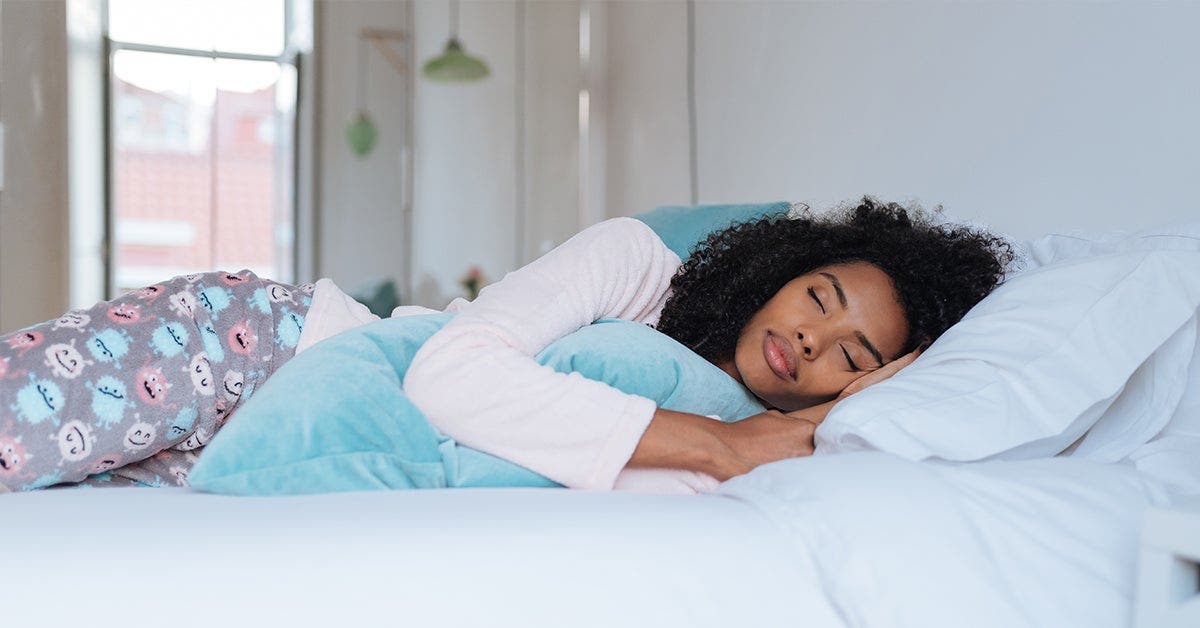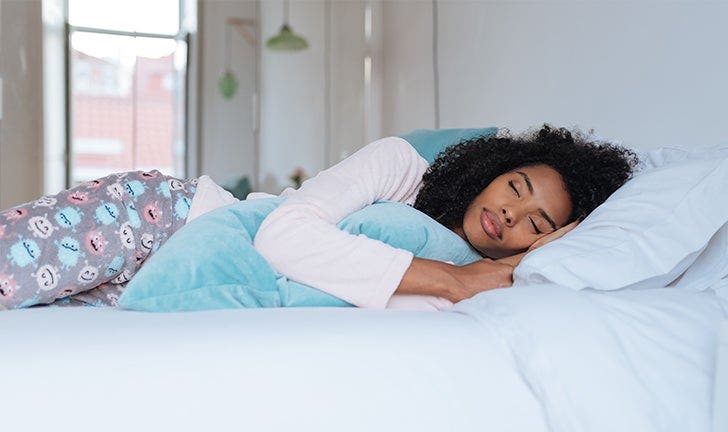Sleep and Menstrual Cycles


Your monthly cycle and sleep quality
Hormonal changes associated with your monthly menstrual cycle can have a significant impact on your sleep. While it’s common for women to experience a range of physical and emotional changes in the days leading up to their period, 33 percent of women say their sleep is affected by their monthly cycle. This includes feelings of fatigue or daytime sleepiness, sleeping too much or not enough, restless sleep, night sweats, and having more difficulty falling asleep or staying asleep. These changes in sleep are typically experienced five to seven days before your period begins and tend to resolve within one to two days after it starts.
Why does this happen?
Your hormone levels fluctuate throughout the different phases of your menstrual cycle. In the first half of your menstrual cycle, levels of progesterone and estrogen rise. However, if you don’t conceive, levels of these hormones drop in the second half of your menstrual cycle, just prior to the onset of your period – and it’s during this time that sleep disturbances arise.
The decline in progesterone and estrogen levels affects how you feel physically and emotionally. In addition to sleep disturbances, you may experience symptoms such as bloating and cramps, constipation or diarrhea, headaches, sensitivity to light and noise, and vivid or disturbing dreams. All of these symptoms can wreak havoc on the overall quality of your sleep. As estrogen levels drop prior to your period starting, it can also cause a slight rise in body temperature. This in turn can lead to sleep disturbances such as hot flashes and night sweats.
In most cases these symptoms are mild. However, women who suffer from premenstrual syndrome (PMS) or premenstrual dysphoric disorder (PMDD) may suffer from more extensive and bothersome symptoms that are even more likely to affect the overall quality of sleep. In fact, women with PMS are two times more likely to experience insomnia before and during their period compared to women without PMS. This condition can also cause them to sleep more than usual.
Tips for better sleep
If hormonal changes during your menstrual cycle are disrupting your sleep, here are some tips to help you get a better night’s rest:
Start a diary. It can be helpful to track what symptoms you are experiencing in the days leading up to your period and note specifically when they occur. Recording details such as when you’re having trouble falling asleep or staying asleep, or when you’re experiencing daytime fatigue, will help you pick up on patterns over a period of several months. If you find solutions that ease your sleeping woes, jot those down too. In doing so, you’ll be better prepared to manage these ongoing symptoms during your monthly menstrual cycle.
Keep cool. Changes in hormone levels during your monthly cycle can interfere with your body’s ability to lower its core temperature in preparation for sleep. And if you’re too hot, that can make it more difficult to fall asleep. A cool bedroom can signal that it’s time for bed, so set your thermostat to between 15°C to 19°C for the most comfortable sleep. You may also find it helpful to take a cool shower before bed, and sleep with a lighter sheet rather than a duvet or heavy blanket.
Get moving. Aim for at least 20 to 30 minutes of exercise each day, particularly in the morning or afternoon. Exercise boosts body temperature so getting moving earlier in the day allows time for your temperature to drop towards the evening hours which is important for helping to induce sleep. Exercise can also be helpful for reducing stress levels and may boost your mood during your menstrual cycle. It can also improve quality of sleep by increasing the amount of deep sleep you get, which is the stage of sleep needed to help you feel refreshed and well-rested in the morning.
Watch your caffeine and alcohol intake. Stick to drinking water and other decaffeinated drinks, such as herbal tea, before bed. If you’re having trouble sleeping, avoid consuming caffeine for at least six hours before bedtime. Caffeine can be found in coffee, chocolate, and some pain medications – all things you may be reaching for during your menstrual cycle. It’s also best to avoid alcohol before bedtime as it can disrupt the quality of your sleep.
